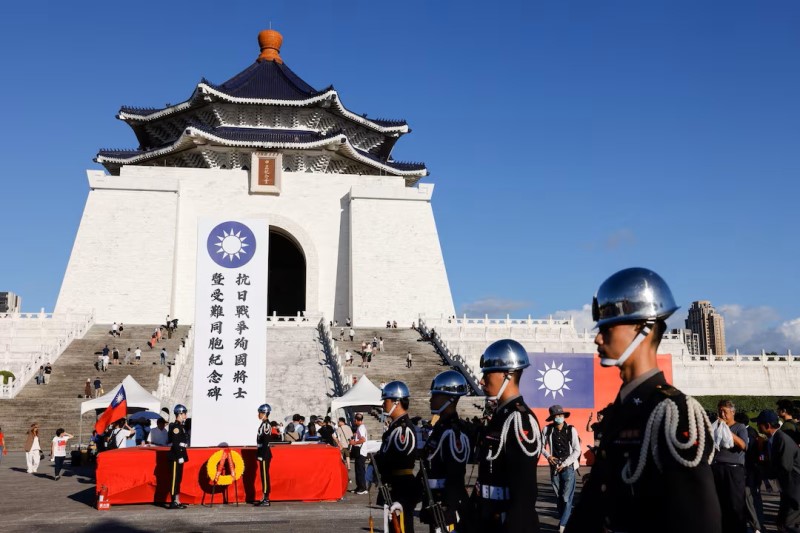Ninety-nine-year-old veteran Pan Cheng-fa vividly recalls fighting against the Japanese invasion during World War Two as part of the Republic of China’s forces. However, he grows agitated when asked about the role of the communist forces, who at that time were uneasy allies of the republican government. Speaking at an event in Taipei commemorating the 80th anniversary of the war’s end, Pan stressed how the republican government had supported the communists with weapons and equipment. Yet, he accused them of turning against the Republic of China after Japan’s defeat, leading to the civil war that ultimately forced the republican government to retreat to Taiwan in 1949.
As China prepares for a large military parade in Beijing next month to mark the war’s end, tensions between Taiwan and the People’s Republic of China have sharply risen over competing historical claims. Taiwan emphasizes that most of the fighting against Japan was conducted by Chiang Kai-shek’s republican forces, highlighting that the Republic of China signed the peace treaty as one of the Allied powers. Meanwhile, China’s ruling Communist Party stresses its role as the backbone of the war of resistance, although it did not exist as the People’s Republic of China until after the conflict ended. Taiwan’s Mainland Affairs Council condemned Beijing’s version of history as distorted and accused the communists of prioritizing internal power struggles over fighting the Japanese.
Taiwan’s remembrance events are low key but clear in their message, celebrating the Republic of China’s role and largely excluding the communists. For example, a recent defense ministry concert featured performances honoring the republican soldiers and the volunteer U.S. Flying Tigers, with statements affirming that the war was led and won by the Republic of China. In response, China’s official media warned against attempts to falsify the Communist Party’s role in defeating Japan, insisting that the victory belongs to all Chinese people, including Taiwan, which was returned to China after decades of Japanese colonial rule. Taiwan rejects this narrative, noting that no agreements at the war’s end transferred sovereignty over Taiwan to the Communist Party’s new regime.
President Lai Ching-te of Taiwan marked the anniversary by warning against aggression, alluding to Beijing’s ongoing military threats. The two sides remain sharply divided, with China insisting Taiwan is an inherent part of its territory as the successor to the Republic of China, a claim vehemently opposed by Taipei. Taiwan’s government has advised its citizens not to attend the upcoming Chinese military parade, fearing it would underline Beijing’s territorial claims. For veterans like Pan Cheng-fa, the parade holds no honor. Having suffered loss and brutality at the hands of communist forces, he bluntly states, “I can’t say anything good about the communists,” underscoring the deep historical and political rifts that remain between Taiwan and mainland China.














